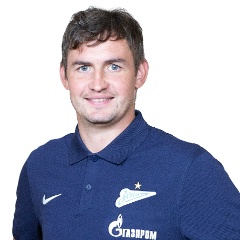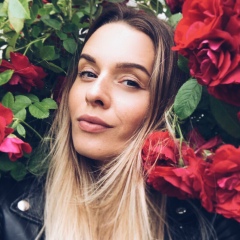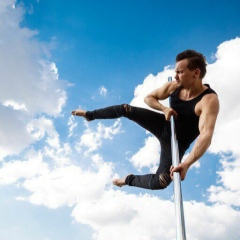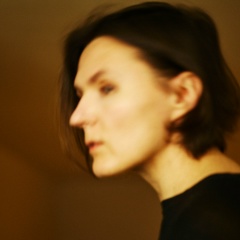Сколько бы в нас ни было индивидуальности (оригинальности, уникальности), общего в нас всегда больше. Просто потому, что мы подчиняемся закону жизни, который природа придумала для нас, как вида, а не как индивида. Природа решила, что каждый из нас должен продолжить род, если он окажется к этому годен, а затем он должен умереть. И если вы думаете, что смерть — это не опциональное решение дизайнера «природа», то вы ошибаетесь: существуют медузы, у которых вместо старости наступает стадия, аналогичная их развитию после рождения; по-сути, организм заново рождается. И если условия позволяют, этот организм проживёт много таких циклов, в некотором смысле неограниченное их число. Природа сделала нас смертными потому, что решила, что нашему виду нужно таким быть.
Каждый из нас — это пакет аминокислот и воды, генов и нейронов, а также вмещённое во всё это каким-то образом таинственное сознание. И гены — наша скомпилированная программа, в которой запрограммирована наша неизбежная старость и неизбежная смерть. Сколь бы мы уникальны, востребованы, самодостаточны и полноценны ни были, эта органическая суть всегда будет главнее всех остальных, которые мы вынуждены придумывать, чтобы облегчить себе мысли о нашей конечности.
Ещё одно проявление этой общности, вложенной в нас: наверняка многие из взрослых или пожилых мам в крайней ситуации будут готовы пожертвовать жизнь за своего ребёнка. А ведь это будет означать не просто какие-то страдания, через которые надо, стиснув зубы, пройти — нет, это будет означать несуществование; конец индивида, конец жизни, конец сознания; небытие. Индивид никогда на такое не пойдёт, но мама, человек — пойдёт: потому что по своей сути мы не индивиды. Потому что человек понимает свою неизбежную конечность — эту его суть. Продолжение же рода — это вторая суть. Обе эти сути мы не придумывали, на выбор нам они не предлагались. Просто они были скелетом вложены в нашу основу, а остальное, словно мясо на вертел для шаурмы, нанизано сверху. Это так в нас вложено — видеть в своём потомстве исполненную жизненную роль, но также видеть в нём и частичку себя, что-то, что останется от нас, когда мы погрузимся в небытие. Наверное, у мам это осознание острее, чем у пап, но суть одна. В сути своей мы — хотим мы этого, или нет — не индивиды, мы — маленькая часть продолжительной истории.
Каждый из нас — это пакет аминокислот и воды, генов и нейронов, а также вмещённое во всё это каким-то образом таинственное сознание. И гены — наша скомпилированная программа, в которой запрограммирована наша неизбежная старость и неизбежная смерть. Сколь бы мы уникальны, востребованы, самодостаточны и полноценны ни были, эта органическая суть всегда будет главнее всех остальных, которые мы вынуждены придумывать, чтобы облегчить себе мысли о нашей конечности.
Ещё одно проявление этой общности, вложенной в нас: наверняка многие из взрослых или пожилых мам в крайней ситуации будут готовы пожертвовать жизнь за своего ребёнка. А ведь это будет означать не просто какие-то страдания, через которые надо, стиснув зубы, пройти — нет, это будет означать несуществование; конец индивида, конец жизни, конец сознания; небытие. Индивид никогда на такое не пойдёт, но мама, человек — пойдёт: потому что по своей сути мы не индивиды. Потому что человек понимает свою неизбежную конечность — эту его суть. Продолжение же рода — это вторая суть. Обе эти сути мы не придумывали, на выбор нам они не предлагались. Просто они были скелетом вложены в нашу основу, а остальное, словно мясо на вертел для шаурмы, нанизано сверху. Это так в нас вложено — видеть в своём потомстве исполненную жизненную роль, но также видеть в нём и частичку себя, что-то, что останется от нас, когда мы погрузимся в небытие. Наверное, у мам это осознание острее, чем у пап, но суть одна. В сути своей мы — хотим мы этого, или нет — не индивиды, мы — маленькая часть продолжительной истории.
No matter how much individuality (originality, uniqueness) we have, there is always more in common in us. Simply because we obey the law of life, which nature has invented for us, as a species, and not as an individual. Nature decided that each of us must continue the race if he is suitable for this, and then he must die. And if you think that death is not an optional decision of the designer "nature", then you are mistaken: there are jellyfish, which, instead of old age, have a stage similar to their development after birth; in fact, the organism is reborn. And if conditions allow, this organism will live many such cycles, in a sense, an unlimited number of them. Nature made us mortal because it decided that our species needed to be that way.
Each of us is a package of amino acids and water, genes and neurons, as well as a mysterious consciousness embedded in all this in some way. And genes are our compiled program in which our inevitable old age and inevitable death are programmed. No matter how unique, in demand, self-sufficient and complete we are, this organic essence will always be more important than all the others that we have to come up with in order to facilitate our thoughts about our finitude.
Another manifestation of this community, invested in us: surely many of the adult or elderly mothers in an extreme situation will be ready to sacrifice their lives for their child. But this will mean not just some kind of suffering through which you have to go through gritted teeth - no, it will mean non-existence; the end of the individual, the end of life, the end of consciousness; nothingness. An individual will never agree to this, but a mother, a person - will: because in our essence we are not individuals. Because a person understands his inevitable finitude - this is his essence. Continuation of the race is the second essence. We did not invent both of these essences, they were not offered to us for choice. It's just that they were skeletally embedded in our base, and the rest, like meat on a skewer for shawarma, is strung from above. This is so invested in us - to see in our offspring a fulfilled vital role, but also to see in them a part of ourselves, something that will remain of us when we plunge into nothingness. Probably, moms have this awareness sharper than dads, but the essence is the same. At our core, we - whether we like it or not - are not individuals, we are a small part of a long history.
Each of us is a package of amino acids and water, genes and neurons, as well as a mysterious consciousness embedded in all this in some way. And genes are our compiled program in which our inevitable old age and inevitable death are programmed. No matter how unique, in demand, self-sufficient and complete we are, this organic essence will always be more important than all the others that we have to come up with in order to facilitate our thoughts about our finitude.
Another manifestation of this community, invested in us: surely many of the adult or elderly mothers in an extreme situation will be ready to sacrifice their lives for their child. But this will mean not just some kind of suffering through which you have to go through gritted teeth - no, it will mean non-existence; the end of the individual, the end of life, the end of consciousness; nothingness. An individual will never agree to this, but a mother, a person - will: because in our essence we are not individuals. Because a person understands his inevitable finitude - this is his essence. Continuation of the race is the second essence. We did not invent both of these essences, they were not offered to us for choice. It's just that they were skeletally embedded in our base, and the rest, like meat on a skewer for shawarma, is strung from above. This is so invested in us - to see in our offspring a fulfilled vital role, but also to see in them a part of ourselves, something that will remain of us when we plunge into nothingness. Probably, moms have this awareness sharper than dads, but the essence is the same. At our core, we - whether we like it or not - are not individuals, we are a small part of a long history.
У записи 1 лайков,
0 репостов.
0 репостов.
Эту запись оставил(а) на своей стене Алеша Филиппенко






















